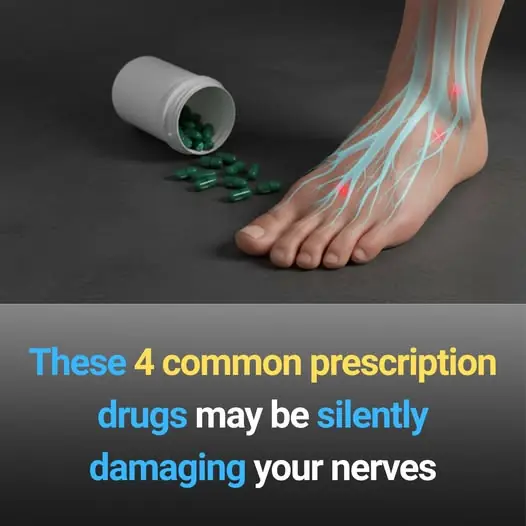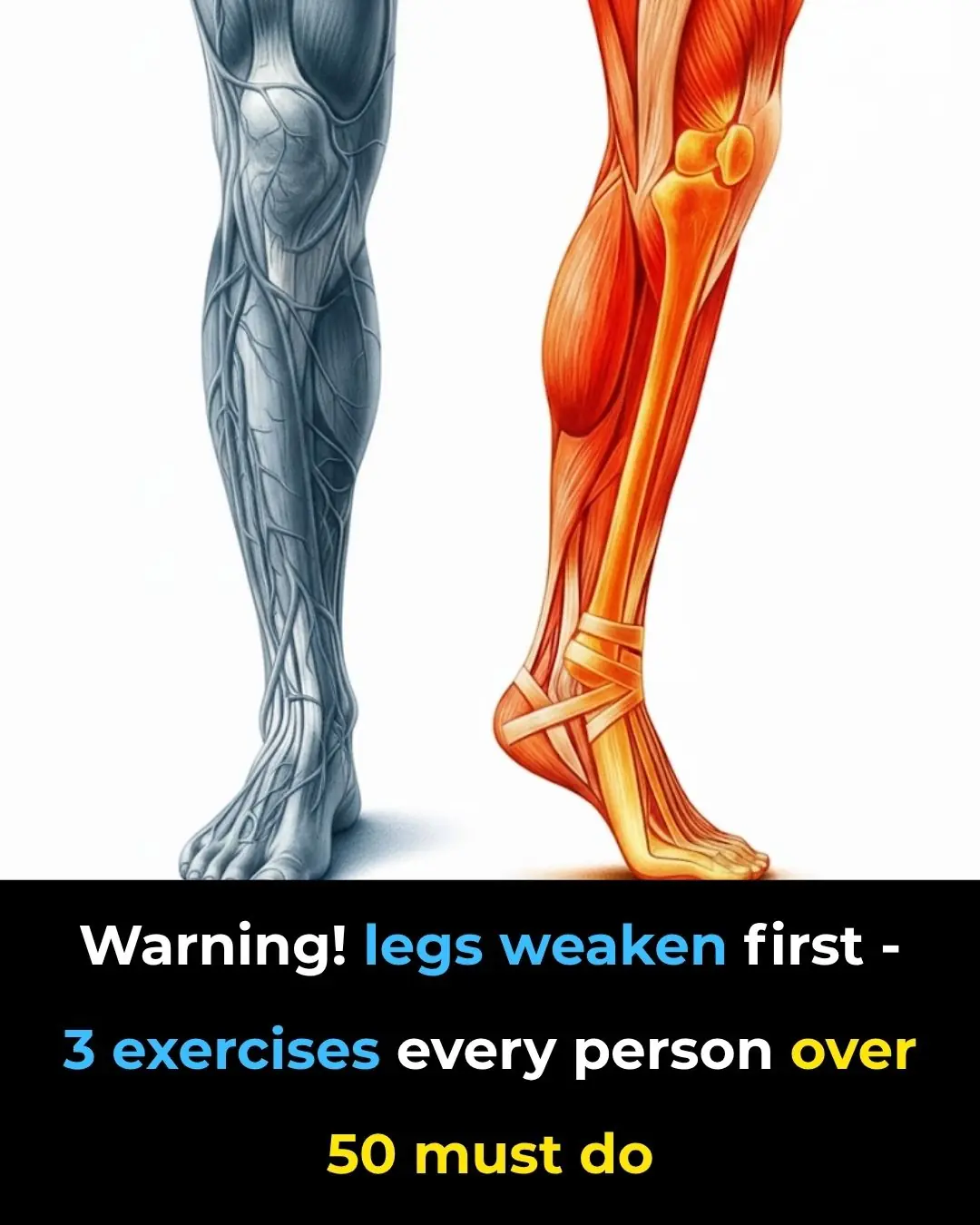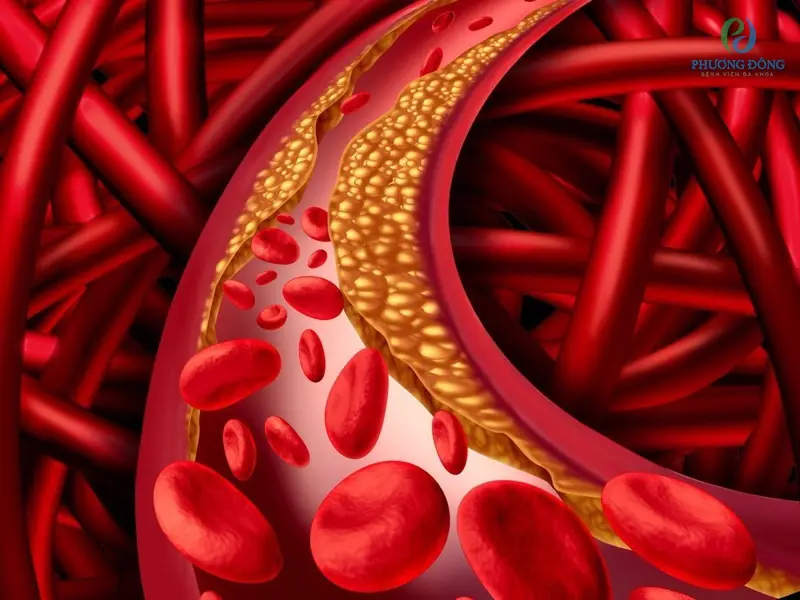
I used castor oil for neuropathy – here’s what happened in 30 days!

Peripheral neuropathy can be incredibly challenging to live with. The numbness, tingling, burning, or sharp pain in the hands and feet can interfere with daily life, sleep, and overall comfort. This condition typically arises from nerve damage caused by diabetes, injuries, infections, toxins, or autoimmune disorders. While there are numerous treatments—ranging from medication to alternative therapies—finding something that genuinely helps often feels like an ongoing journey.
This expanded guide takes a closer look at the potential benefits of castor oil, a natural remedy used for centuries, and includes personal experiences based on the observations of registered nurse Danielle Minetti.
📌 What Is Neuropathy?

Neuropathy occurs when the peripheral nerves—usually those in the hands and feet—become damaged. When these nerves malfunction, the communication between your brain and body becomes disrupted, leading to symptoms like numbness, tingling, pain, or a burning sensation. People often describe it as feeling like their nerves are “misfiring” or sending unclear signals.
A variety of factors can contribute to nerve damage, including:
-
Trauma: Physical injuries or repetitive stress can injure nerves.
-
Diabetes: One of the most common causes, as long-term high blood sugar harms nerve fibers.
-
Toxins: Certain chemicals, medications, or heavy metals can impair nerve health.
-
Infections: Conditions like shingles or Lyme disease may trigger neuropathy.
-
Autoimmune disorders: Diseases such as lupus or Guillain-Barré syndrome can cause the immune system to mistakenly attack nerve tissue.
Common Treatment Approaches
Because neuropathy is often progressive, treatment typically focuses on controlling the underlying cause and easing symptoms. Approaches may include:
-
Over-the-counter supplements: such as B vitamins or alpha-lipoic acid.
-
Homeopathic or alternative remedies aimed at nerve relaxation.
-
Red light therapy: which uses specific wavelengths to encourage healing.
-
Prescription medications: including gabapentin, Lyrica, or Cymbalta.
-
Advanced therapies: like IVIG or corticosteroids for immune-related nerve damage.
Most therapies provide symptom relief rather than a full cure. This is why many people continue searching for natural remedies that complement their current treatment plan—and castor oil has become one such option worth considering.
🎉 Why Castor Oil May Help Neuropathy
Castor oil comes from the seeds of the castor bean plant and has a long history in traditional medicine. Its effectiveness is primarily linked to its unique chemical profile, especially ricinoleic acid, a fatty acid known for its anti-inflammatory and soothing properties.
Additionally, castor oil contains:
-
Oleic acid: an omega-9 fatty acid that supports nerve and cell membrane health.
-
Linoleic acid: an omega-6 fatty acid essential for skin integrity and repair.
Together, these compounds contribute to several therapeutic properties that may benefit neuropathy symptoms.
🚀 1. Anti-Inflammatory Benefits
Ricinoleic acid appears to help reduce inflammation through several mechanisms:
-
Modulating prostaglandins: lowering activity of hormone-like substances that increase pain and swelling.
-
Decreasing inflammatory proteins: helping calm the body’s inflammatory response.
-
Providing antioxidant effects: reducing cell damage caused by unstable molecules.
-
Interacting with sensory nerve receptors: promoting release of soothing compounds that help relax irritated nerves.
Because inflammation and nerve pain are closely connected, anything that reduces inflammation may also ease neuropathic discomfort.
🚀 2. Natural Pain Relief
Many users report a gentle warming sensation when castor oil is applied to the skin. This warmth, combined with the oil’s anti-inflammatory action, can help calm overstimulated nerves and ease sensations such as burning or tingling.
🚀 3. Improved Circulation
The warming and massaging effect encourages blood vessels to dilate, increasing oxygen and nutrient delivery to tissues. Better blood flow supports healing and helps reduce swelling by stimulating the lymphatic system.
Castor oil’s thick consistency also allows it to penetrate deeply into the skin while forming a barrier that locks in moisture.
🎯 Personal Experience: 30 Days of Castor Oil for Neuropathy
After applying castor oil nightly for 30 days, I was surprised by how quickly I noticed changes. My neuropathy is relatively mild due to long-standing diabetes management, so results may vary for those with more advanced nerve damage.
Within the first hour of use, a gentle warmth spread through my feet and calves. The usual nighttime tingling—especially intense when I first got into bed—became significantly easier to tolerate. After about two weeks, these improvements lasted longer and became more noticeable. When I applied it to my hands and wrists, I experienced similar relief.
👉 How I Applied Castor Oil
While many people use castor oil packs for detox purposes, I opted for a simpler approach for neuropathy:
-
I chose a cold-pressed, organic castor oil in a dark glass bottle, free of hexane or chemical solvents.
-
Each night, I massaged a palm-sized amount into my toes, feet, ankles, and calves.
-
I used upward motions to support circulation and lymphatic drainage.
-
I did not use heat afterward, since warmth can aggravate symptoms for some people.
This simple routine only took a few minutes but became a relaxing part of my nightly wind-down.
⚙️ Side Effects and Unexpected Observations
Castor oil is readily absorbed through the skin. Because it acts as a natural laxative when taken internally, using large amounts on the skin may cause similar effects in sensitive individuals. Start small and increase gradually.
A few things to watch for:
-
Patch testing: apply a small amount first to check for allergic reactions.
-
Mixing with other oils: such as coconut or olive oil, can help dilute it for sensitive skin.
-
Avoid touching your face afterward: I once transferred a bit to my face and ended up with a temporary rash.
Interestingly, I also noticed better sleep on the nights I used castor oil. Although I didn’t expect this, I consistently woke up feeling unusually refreshed.
✅ Key Takeaways
-
Castor oil contains ricinoleic acid, which may help reduce inflammation and soothe irritated nerves.
-
It encourages better circulation and may help lessen swelling.
-
Regular use provided noticeable relief from tingling, warmth, and nerve discomfort.
-
Always start with small amounts and test your skin for sensitivity.
-
Some people may even experience improved sleep quality.
-
While scientific research is limited for castor oil’s nerve-specific effects, its FDA-recognized properties and long history of use make it a compelling natural option to explore.
Interestingly, even early 20th-century medical literature—including a 1900 JAMA article—referenced castor oil for nerve pain. Based on my experience, I plan to continue using it as part of my nightly routine alongside standard neuropathy treatments.
News in the same category


Health problems that improve with vitamin B12 (and how to use it)

The 70-year-old blood pressure drug scientists say may help stop deadly brain tumors

These 4 common prescription drugs may be silently damaging your nerves

The #1 fastest way to reverse liver and kidney damage

The protein sources that build your body vs. the ones that waste your money

Warning! legs weaken first — 3 exercises every person over 50 must do

Powerful Foods That Help Prevent Clogged Arteries And Keep Your Heart Feeling 20 Again

Natural Plaque-Removal Tricks That Actually Work

What Is The Normal Blood Pressure For Each Age

How Two Quiet Hours a Day Can Rebuild Your Brain

Rose Essential Oil: New Research Shows 30 Days of Aromatherapy May Boost Gray Matter Volume

Italy’s Porous Streets: A Quiet Innovation That Lets Cities Breathe Again

🦵 Swollen Legs and Feet: Causes, Symptoms & Natural Relief Methods

🌿 If You Have These Two “Dimples” on Your Lower Back, Here’s What They Mean

How Wisdom Teeth Could Power the Next Generation of Regenerative Medicine

This one vitamin could help stop you from waking up to pee every night

Scientists uncover how chronic stress may starve the brain of blood flow

Japan's Oldest Doctor: Can’t Sleep Through the Night? Use Garlic This Way for Deep Rest in 3 Nights
News Post

Take the meat from the freezer and it's hard as bricks

Your Mattress Getting Dirty and Smelly? Sprinkle This on the Surface — No Water Needed, and It’ll Look Fresh Again

Sink Trick You Should Always Do Before Vacation

My nana taught me this hack to make dusty blinds sparkle in 2 mins with 0 work

How To “Remove” All The Chemicals Out Of Store-Bought Chicken

Stadiums of Sanctuary: A Winter Refuge Beneath South Africa’s Grand Arenas

Newly Discovered Molecule Could Allow Teeth to Heal Naturally, Transforming the Future of Dentistry

If You Want Your Meat to Stay Fresh Longer, Make Sure to Do This One Extra Step Before Refrigerating

Sweden Turns School Lunchrooms Into Forest-Inspired Sanctuaries to Boost Student Well-Being

Heated Sidewalks and Cold Mornings: Iceland’s Quiet Revolution in Winter Comfort

When Pleasing Others Hurts Your Health: New Study Links People-Pleasing to Autoimmune Risk

Knives become dull and rusty after long use. Remember these 5 easy ways to clean them. No matter how rusty your knife is, it will still be shiny and sharp

Why We Sleep With ‘T-Rex Arms’: A Self-Soothing Posture Linked to Stress and Neurodivergence

Choose the Longest Line

Scientists say this nutrient may hold the key to reversing heart disease

Health problems that improve with vitamin B12 (and how to use it)

The 70-year-old blood pressure drug scientists say may help stop deadly brain tumors

France Turns Forgotten Railway Tunnels into Poetic Winter Shelters for the Unhoused

Rose Essential Oil May Boost Brain Structure: New Study Reveals Increased Gray Matter Volume
